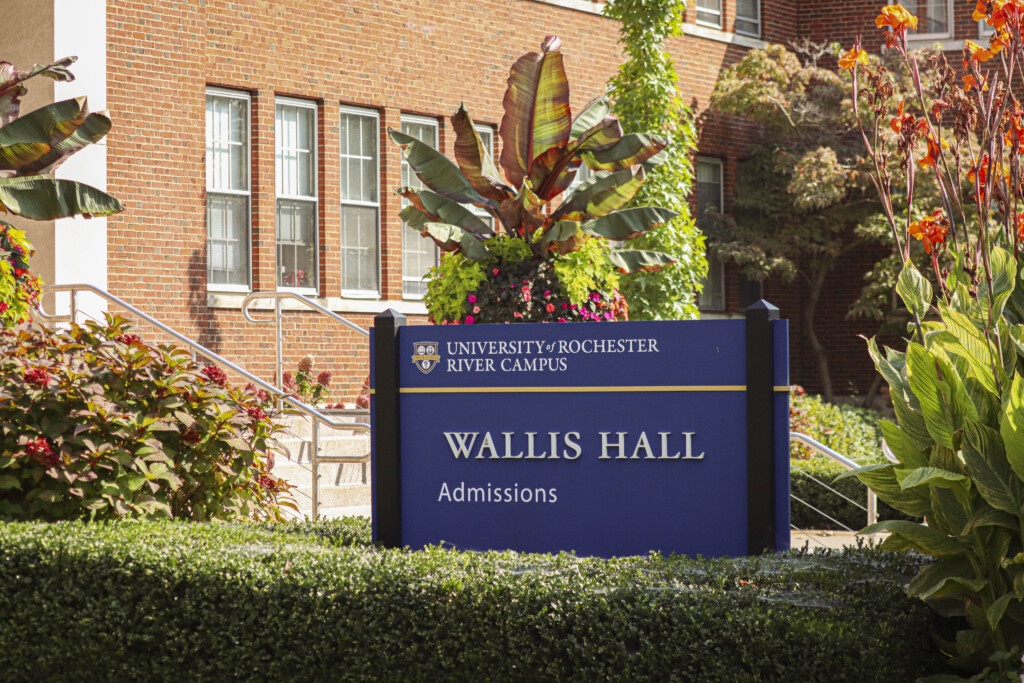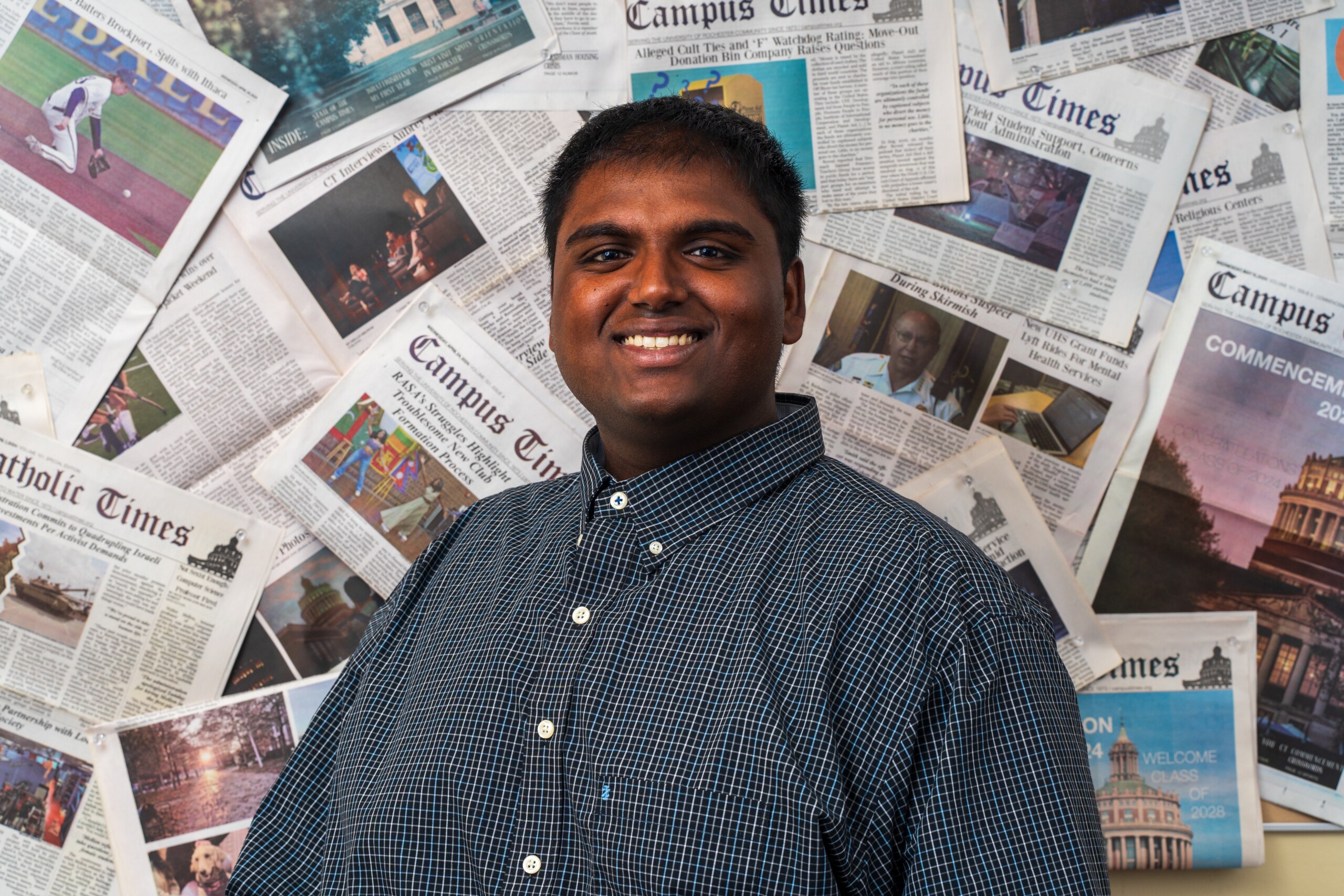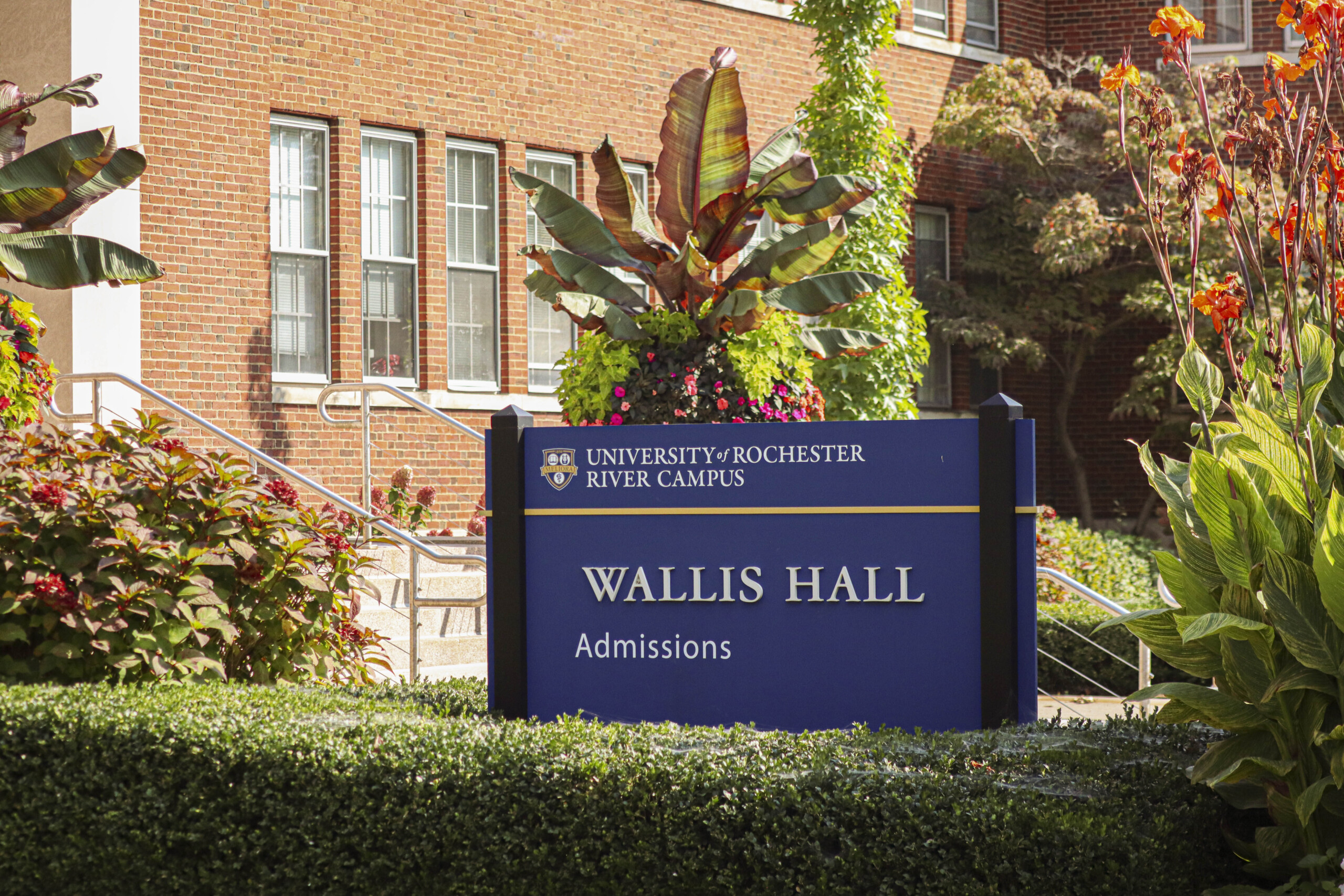Every year, the University’s Admissions Department publishes statistics on the current student body and incoming freshmen. The Class of 2027 saw 7,421 admitted students, 1,428 of which were committed to the University by last fall. Though enrollment hovers relatively low at just under 20%, the rate remains relatively stable over time despite growing applications.
When looking at the available data from the Class of 2024 to that of 2027, the latter holds the most applications by far at just over 20,000. The rate of admission has adjusted seemingly in response to this growth to keep enrollment rates relatively similar. With questions on the availability of housing, class size, and more, the question for admissions regards their role in curating the ideal class for UR.
“Our enrollment trends are the result [of] careful strategic planning and extraordinary hard work from a team of staff members traveling and recruiting across the globe, evaluating application materials, and cultivating campus visits,” Dean of University Admissions Robert Alexander stated.
In gauging prospective students, he emphasizes two core tenets: their academic achievement and potential to succeed here. “That evaluation includes a deep dive into the context from which a student is coming, to gauge how they utilized their opportunities to fulfill their intellectual curiosity,” Alexander explained.
The overall student body numbers have also seen a slight increase. University-wide enrollment for the Class of 2027 was 12,160, with nearly 60% of those in Arts, Sciences, and Engineering.
Though data is not publicly available for the Class of 2028, Alexander mentioned their all-time highs in enrollment and interest. “Since 2019, demand from well-qualified and diverse students has increased significantly, with undergraduate enrollment growing to record levels, including the largest enrolling classes in the University’s history,” he stated.
“Enrollment division leaders develop targets in concert with other key administrators, including Housing and Residence Life, and we do consider space constraints and impacts of class sizes on student housing and campus resources. Those considerations were part of shaping this year’s first-year class after reaching all-time highs.”
Existing resident advisors recall the pressure students have in finding adequate housing — including a housing lottery widely considered nightmarish in spring 2022. According to junior Jay-Brian Randone, a current RA and Meridian, available freshman housing has become more plentiful at the cost of fluctuating availability for upperclassmen. “A lot of the other RAs are really struggling with capacity… they’re saying it’s lethal, there’s no spaces available to move in, that’s why they’ve had to change [things up and] move into different housing like the Fraternity Quad.”
“I’ve noticed that for my year, I feel like there were so many freshmen,” sophomore and Meridian Mapalo Kasapo said. “Now I feel like this year has less people… for me, that’s something new.”
Despite concerns about housing, behind them lies a sense of pride in seeing the ways the student body has grown, whether it be in the interest the freshmen take in their school, or the diversity they’ve embraced in being here. “I’m part of this club that’s for African students, and I feel like this year has more [than my year],” Kasapo explained. “I feel like that’s a good thing.”
22% of students in the Class of 2027 were first-generation students. Over time, those who have historically been underrepresented in college admissions have seen themselves grow at UR, with individuals from Latinx, multiracial, and international backgrounds seeing consistent increases in University data.
“As a first-gen college graduate myself, a critical component of my own interest in applying for my position at Rochester was the commitment to access for students traditionally underrepresented in U.S. higher education,” Alexander said. “As we make admissions decisions, we set the highest standards to ensure our community is a place where all are welcome and respected, and where all can pursue and achieve their highest objectives for themselves, their community, and the world.”
For Randone and Kasapo, getting to know the new classes symbolizes not just a source of pride, but personal growth. “I [would have] enjoyed my freshman experience a little bit more if I’d known that it would be much [harder] in the upcoming years […] I definitely would have gone out more [and spent] more time with a lot of people,” Randone stated. “Most of the time, the friends you make in your freshman year are going to be the friends you make for an entire four years […those are] the strongest connections you have.”
“I think just being in a class with the first-years is kind of exciting because some of them are really excited for school,” Kasapo stated, who’s taking BIO 110 this semester. “Even the questions that they’re asking, it’s like ‘oh my gosh, I used to be like that’ […] I think it’s pretty good.”



